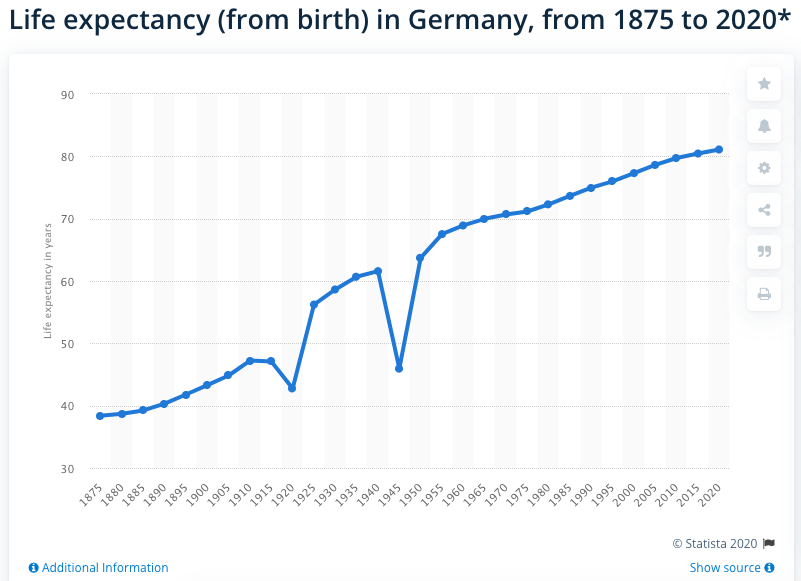4.1 Wie beeinflussen Wissenschaft und Technologie unser Leben?
4 min read•june 18, 2024
Nathan Wichert
AP German 🇩🇪
29 resourcesSee Units
Welche Rolle spielen Erfindungen und Entdeckungen in Wissenschaft und Technologie 👩💻👨💻📡❓
The world’s population is expected to increase by 2 billion people in the next 30 years, from 7.7 billion currently to 9.7 billion in 2050, according to a new United Nations report from 2019. The UN also thinks the world will reach 11 billion people by 2100. The world’s population is growing older because of increasing life expectancy. Not all countries are experiencing a baby boom. There are a lot of countries that have falling fertility levels, like Germany, Switzerland, and Austria.
“Many of the fastest growing populations are in the poorest countries, where population growth brings additional challenges in the effort to eradicate poverty, achieve greater equality, combat hunger and malnutrition, and strengthen the coverage and quality of health and education systems to ensure that no one is left behind.” —Liu Zhenmin, United Nations Under-Secretary-General for Economic and Social Affairs
Life Expectancy
Life expectancy is the key metric used for looking at the health of a population. Life expectancy has increased rapidly since the Age of Enlightenment (an intellectual and philosophical movement that dominated the world of ideas in Europe during the 17th to 19th centuries). In the early 19th century, life expectancy started to increase in industrialized countries, but it stayed low in the rest of the world. This led to inequality in how health was distributed across the world. Good health in the rich countries and persistently bad health in those countries that remained poor.
Over the last decades, this global inequality decreased. Today, no country anywhere in the world has a lower life expectancy than the countries with the highest life expectancies did in 1800.
Since 1900 the global average life expectancy has more than doubled and is now above 70 years. There is still a lot of work to do, but scientists and doctors are working to ensure everyone can benefit from advances in medicine⚕️that lead to longer lives.
In 1875, life expectancy in Germany was below 39. Over the course of the next 145 years, it is expected to increase to above 81 years in the year 2020. Although life expectancy has generally increased throughout Germany's history, there were several times when the rate deviated from its previous trajectory. The most notable changes were because of the First and Second World Wars, in the first half of the twentieth century.

Image taken from statista.com.
Healthcare in Germany: Social Insurance
Germans take care of themselves, and each other. The idea of social insurance in Germany is not new. It goes back to the 19th century when craftsmen took a portion of their pay and put it into insurance funds to pay for any future medical needs.
Germany has a reputation for having one of the best and most comprehensive healthcare systems in the world, providing its residents with health, sick pay, and long-term nursing care insurance coverage.
Approximately 89% of the population is a mandatory or a voluntary member of the public health scheme, while the rest have private health insurance. The health insurance reform of 2007 requires everyone living in Germany to be insured for at least hospital and out-patient medical treatment.
The costs of the German public health care scheme are immense and are constantly rising due to the aging population as well as the general rise of medical costs.
Insurance in Germany today is based on two things:
Gesetzliche Krankenversicherung (Statutory Health Insurance 🏛️)
If you make less than €59,400 you are automatically insured by the government. This means you never have to worry about having enough money for doctors or medication because everything is covered by the country.
If you make more than €59,400 you can choose to be insured on statutory health insurance or you can choose to pursue private insurance. A lot of times it is more affordable to choose private insurance because the government will charge you based on how much money you make.
Statutory health insurance in Germany provides a range of services and benefits including:
- Medical and dental treatment 🤕 👨🏽⚕️
- Medication 💊
- Hospital treatment and stays 🏥
- Sick pay 💶
Private Krankenversicherung (Private Health Insurance 👜 💶 )
If your salary is above €59,400 a year, you have the option to access private health insurance in Germany. In addition, civil servants (police officers, firefighters, teachers, mail carriers, etc.) or the self-employed in Germany can also choose private health insurance. About 11% of Germans decide to go with private health insurance.
There are benefits to having private health insurance:
- You have access to private practice doctors 👨🏻⚕️ 👨🏽⚕️ 👨🏾⚕️
- More comprehensive coverage for procedures (you pay less out of pocket)
- Private rooms in hospitals 🛌
Browse Study Guides By Unit
👨👩👧Unit 1 – Families in Germany
🗣Unit 2 – Language & Culture in Germany
🎨Unit 3 – Beauty & Art in Germany
🔬Unit 4 – Science & Technology in Germany
🏠Unit 5 – Quality of Life in Germany
🌪Unit 6 – Challenges in Germany
📚Study Tools
🧐Exam Skills

Fiveable
Resources
© 2025 Fiveable Inc. All rights reserved.